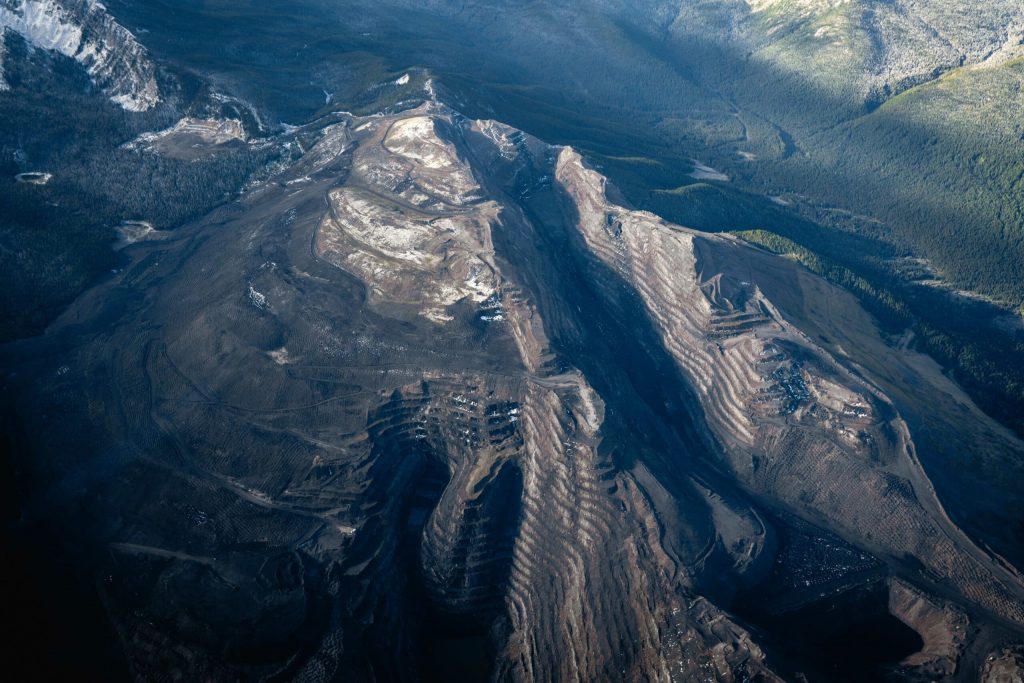In an about face, the United Conservative Party (UCP), headed by former federal cabinet minister Jason Kenney, has returned to a policy, in place since 1976, which declared large swaths of the eastern slopes of the Rocky Mountains off limits to coal mining.
Massive opposition to the original change reversing the law, which would have directly affected the areas that form the heart of the UCP political base, was galvanized through social media campaigns around the rallying cry ‘Mountains Not Mines’, with the demand that the 1976 policy be reimplemented and expanded.
Energy Minister Sonya Savage announced that Alberta was going to re-institute the 1976 policy, for now, until a ‘major public consultation is carried out.”
The government, which very quietly changed the 1976 policy in May 2020, was acting on behest of the coal industry. Following several meetings with the coal companies and the Canadian Coal Association, the policy was rescinded without any public consultation. It was kept below the radar of public opinion until a coalition of ranchers, environmentalists, and alt-country band leader Corb Lund produced a video exposing the policy change and its potential effect on the headwaters of major Alberta River systems, which supply water to downstream communities, ranches, and major tourist destinations.
Lead lobbyist for the coal policy change was former minister of the environment for Alberta, Robin Campbell, and the former president of the United Mine Workers local union at the Teck Corporation mine, who in May 2020 noted that the coal industry was ‘pleased’ by the policy change. Campbell is now head of the Coal Association of Canada, a lobby group which represents both Canadian-owned and offshore mining outfits.
A broad coalition, involving community mayors, town councils, First Nations, ranchers, environmental organizations, and most surprising to the Alberta government, 100s of thousands of Albertans, raised their voices in a letter writing, emailing, and social media campaign which even involved petitions to the federal government, demanding that the 1976 policy be reinstated and extended to cover a large area of the eastern slopes outside the original boundaries.
Most surprising to the Kenney government was the mass resistance which came from the heart of the conservative base in the territory which would be most affected by the new opening of the policy. People in the area were outraged by the manner in which the government changed the policy, which they saw as ‘sneaky.’
They demanded that the government end all coal mining in the area for varied reasons: in order to protect the beauty of the mountains as spiritual retreat, cultural and agricultural value, tourist draw, water source to 3 provinces and parts of the US supplying drinking water and irrigation, prevent destruction of aquatic life balance, cut CO2 emissions globally, and to put environmental stewardship first.
What the mass resistance to the government, whose unpopularity is at an all-time low, did was allow the ecosocialist movement to intervene in a real popular coalition, through sharing stories and information about similar struggles in other countries, like Australia and Argentina, against destructive mining practices.
Unity around the single aim of reinstating the former protective policy was attacked by bureaucrats and MLAs of the Alberta government attempting to divide the movement on partisan lines. This speaks to the underlying strength that a unified front with a common demand has amongst a broad sector of the population, and can form the method by which small but important victories can be won.
It is also a model for the ability to broaden demands around sectoral issues. The right of First Nations consultation, broadening the policy to include the protection of the entire eastern slope watershed, the question of the green transition, or the future of the mine workers, were all areas of potential disagreement which can now be discussed by people who see themselves as allies in the central struggle to protect the mountains.
Mass Opposition Stops Alberta Coal Mining Expansion… For Now.
Mass opposition centered in the heart of the eastern slopes of the Rocky Mountains has forced Alberta’s right-wing government to reverse their decision lifting a government policy that outlawed strip, open face, and other forms of coal mining.
Rob Lyons
February 10, 2021
Rob Lyons
Rob Lyons joined the Canadian section of the USFI in 1971, after a stint as a journalist who covered the Prague Autumn of 1968, and as political organizer for the New Democratic Youth, the left wing youth group of the Canadian labour party based on the trade unions. Until recently, he was the International Coordinator for Socialist Action/Ligue pour lÁction Socialiste, a Canadian Trotskyist organization excluded from the EUSecFI, and in that capacity attended the founding conference of the Tendency for a Revolutionary International. He has been a wilderness and air ambulance pilot, a trade union organizer, and elected union leader, and for 10 years was an elected member of the Saskatchewan, Canada, provincial legislature representing a heavily unionized, working class constituency. He presently writes political commentary and organizes from a working class barrio in southern Costa Rica.









